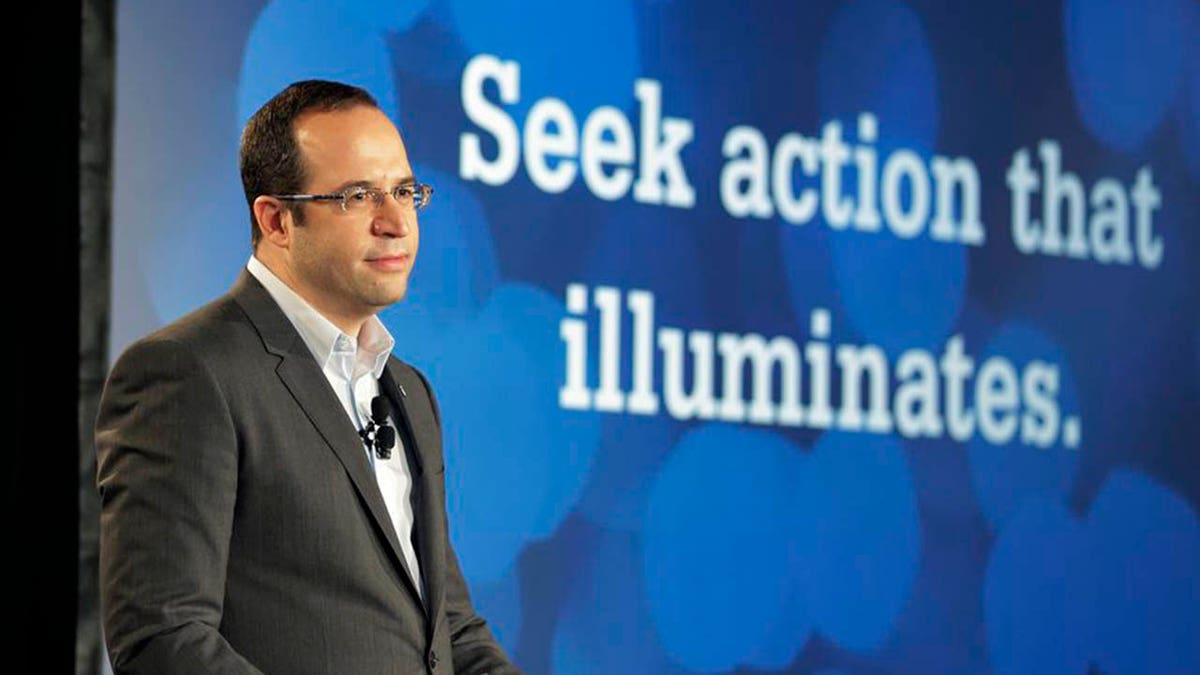College Board to measure 'adversity' students face
The new so-called 'adversity score' will consider 15 factors that measure the social and economic background of potential undergrads; Mark Meredith reports.
The College Board president behind the recent decision to assign applicants an "adversity score" is the same man who courted controversy pushing Common Core, the national K-12 curriculum standards project that several states adopted, then dropped under pressure from education activists.
David Coleman, the architect of Common Core and current president and chief executive of the College Board, has a controversial history with standardized tests and higher learning. Critics claim Common Core, which was designed to establish baseline K-12 curriculum standards but was derided as a power grab from local school boards, should be seen as a cautionary tale. They also suspect Coleman's latest effort, in his current job heading the company behind the SAT test, is an effort to stay relevant amid questions about the fairness of standardized testing.
CHINESE FAMILY WHO PAID $6.5 MILLION IN COLLEGE ADMISSIONS SCANDAL CLAIMS THEY WERE DUPED
"Promotion of adversity scores is the latest attempt by the College Board to defend the SAT against increasingly well-documented critiques of the negative consequences of relying on admissions test scores," Bob Schaeffer, the public education director at FairTest, the National Center for Fair and Open Testing, told US News & World Report.
The rollout of a new score, which takes into consideration the social and economic background of every student, has put the spotlight back on Coleman and his work in the education field that dates back decades. In a statement Thursday defending the adversity score, Coleman said it can help identify students whose potential can't be fully gauged by raw testing data.

David Coleman, the architect of Common Core and current president and chief executive of the College Board, has a controversial history with standardized tests and higher learning. (AP)
"Through its history, the College Board has been focused on finding unseen talent," Coleman said. "The Environmental Context Dashboard shines a light on students who have demonstrated remarkable resourcefulness to overcome challenges and achieve more with less. It enables colleges to witness the strength of students in a huge swath of America who would otherwise be overlooked.
"There is talent and potential waiting to be discovered in every community – the children of poor rural families, kids navigating the challenges of life in the inner city, and military dependents who face the daily difficulties of low income and frequent deployments as part of their family’s service to our country," the statement continued. "No single test score should ever be examined without paying attention to this critical context."
Long before the Common Core controversy, Coleman founded The Grow Network, an Internet-based consulting firm that analyzed tests scores, and in 2001 negotiated contracts with Pennsylvania, New Mexico, Nevada, New Jersey, New York City and Chicago public school districts.
Three years later, Coleman partnered up with Jason Zimba, who eventually became the lead writer of the Common Core mathematics standards, and educational analyst Sue Pimentel, to create Student Achievement Partners, a non-profit which developed "achievement based" assessment standards. SAP took charge of developing the now-infamous Common Core State Standards.
Adopted by 45 states and Washington, D.C. in 2010, Common Core originally had widespread Democratic and Republican support.
Under the program, the focus shifted from students recalling memorized facts and emotion-based essays to analyzing complex information and reasoning.
Interest from state leaders and financial incentives offered by the federal government and private philanthropies like the Bill and Melinda Gates Foundation, which spent more than $400 million itself and influenced billions more in U.S. taxpayer funds to help create and implement the new standards, pumped up public interest in the program but also caused controversy when the government offered states money to nudge them to adopt it.
States’ rights activists cried foul, saying the effort undermined local control.
Meanwhile, some teachers criticized the standards for being confusing, too rigorous and out of sync with students’ needs, while others feared that emphasis on non-fiction would crowd out the literary works of Shakespeare and Twain. At least half a dozen states repealed laws adopting Common Core, though some adopted similar standards under different names.
As the drumbeat grew, Coleman jumped ship to become president and chief executive officer of the College Board, a company that administers the SAT exam taken by about two million students a year.
COMMON CORE 'ARCHITECT' DEALS BLOW TO OPPONENTS WITH SAT REVAMP, SAY CRITICS
Coleman was accused of using his new high-paying gig - he earned a base salary of $550,000, with a total compensation of $750,000 in 2012 - to deal a devastating blow to his Common Core critics.
At Coleman's direction, the SAT was revamped to align with the Common Core Standards Initiative, despite growing complaints and a steady stream of negative press.
Since then, Coleman has also had to deal with a number of cheating scandals including one where Student-Tutor, a test preparation company, suggested SAT or ACT takers boost their scores by up to 350 points by claiming a learning disability to qualify for extra time.
In 2011, 20 teenagers in Great Neck, Long Island, were accused of paying their classmates up to $3,600 to take the tests for them.
There have also been regular reports that SAT questions have been leaked.
Earlier this year, the mother of all scandals broke - a sweeping years-long investigation that revealed the lengths some wealthy parents would go to to get their kids into good schools, including hiring people to take the SATs and other standardized tests.
On Thursday, Coleman, who raked in more than $1.5 million in 2016, made headlines again when it was announced the College Board plans to introduce an "adversity score."
SAT TO USE 'ADVERSITY SCORE' FOR STUDENTS APPLYING TO COLLEGE
The news quickly reignited the debate over race and class in college admissions.
Michael Nietzel, emeritus of Missouri State University, questioned the need of an "adversity score."
"At a time when standardized testing is under increased scrutiny and is even being discontinued or minimized as an admission tool by hundreds of colleges, one must wonder whether adversity scores are primarily an attempt to protect the SAT’s market or to promote social mobility," he wrote in an opinion piece for Forbes. "Colleges that are genuinely concerned about the bias built into the tests or the cheating associated with the SAT or the ACT, have a simpler choice: don’t require students to take them."
CLICK HERE FOR THE FOX NEWS APP
Nietzel also believes "there's not a straight line from socioeconomic background to SAT performance" and adds that "assigning an adversity number suggests an influence that may not be operating for individual students, and it probably overlooks influences that are."
"The fact that the College Board does not want students to know their adversity scores reflects their own discomfort with the concept," he said.
The Associated Press contributed to this report.









































